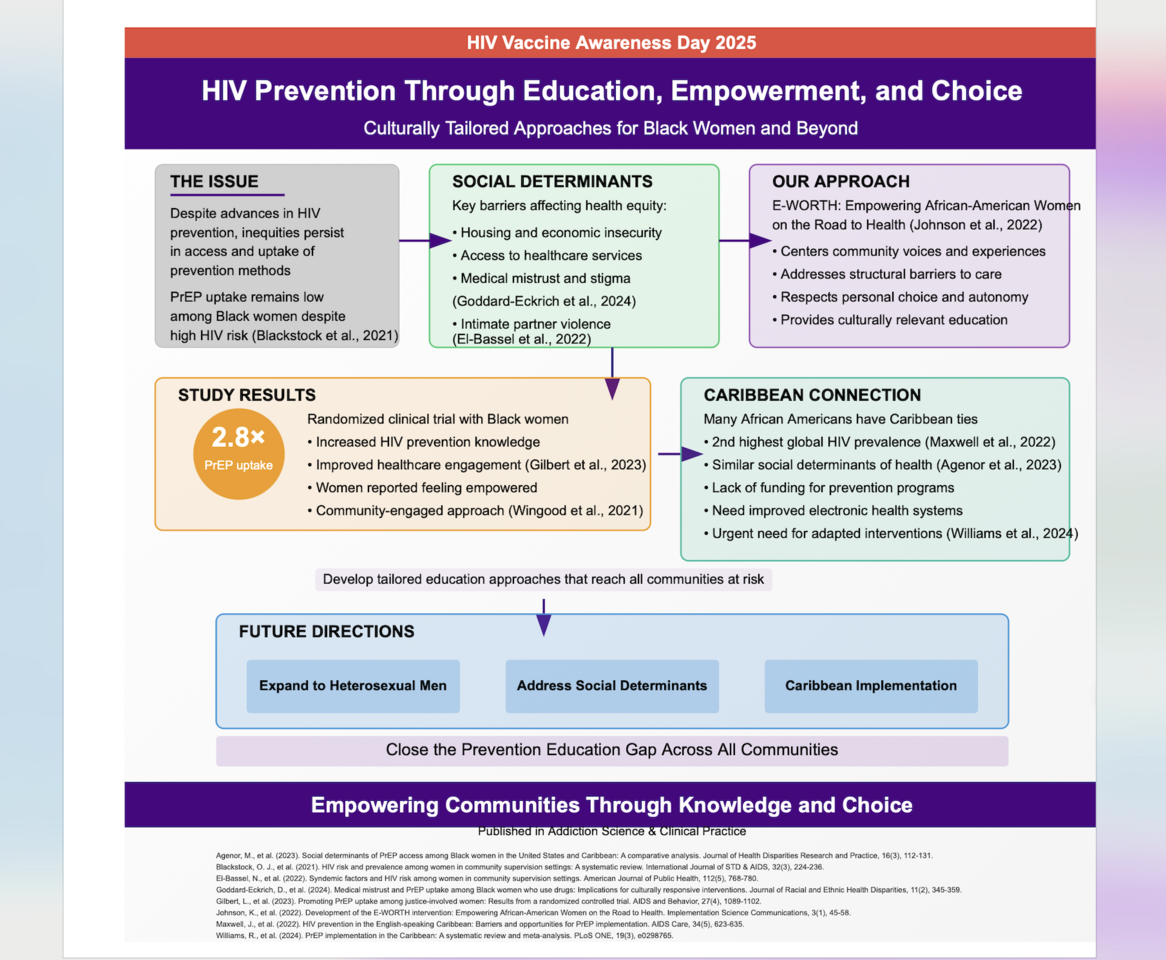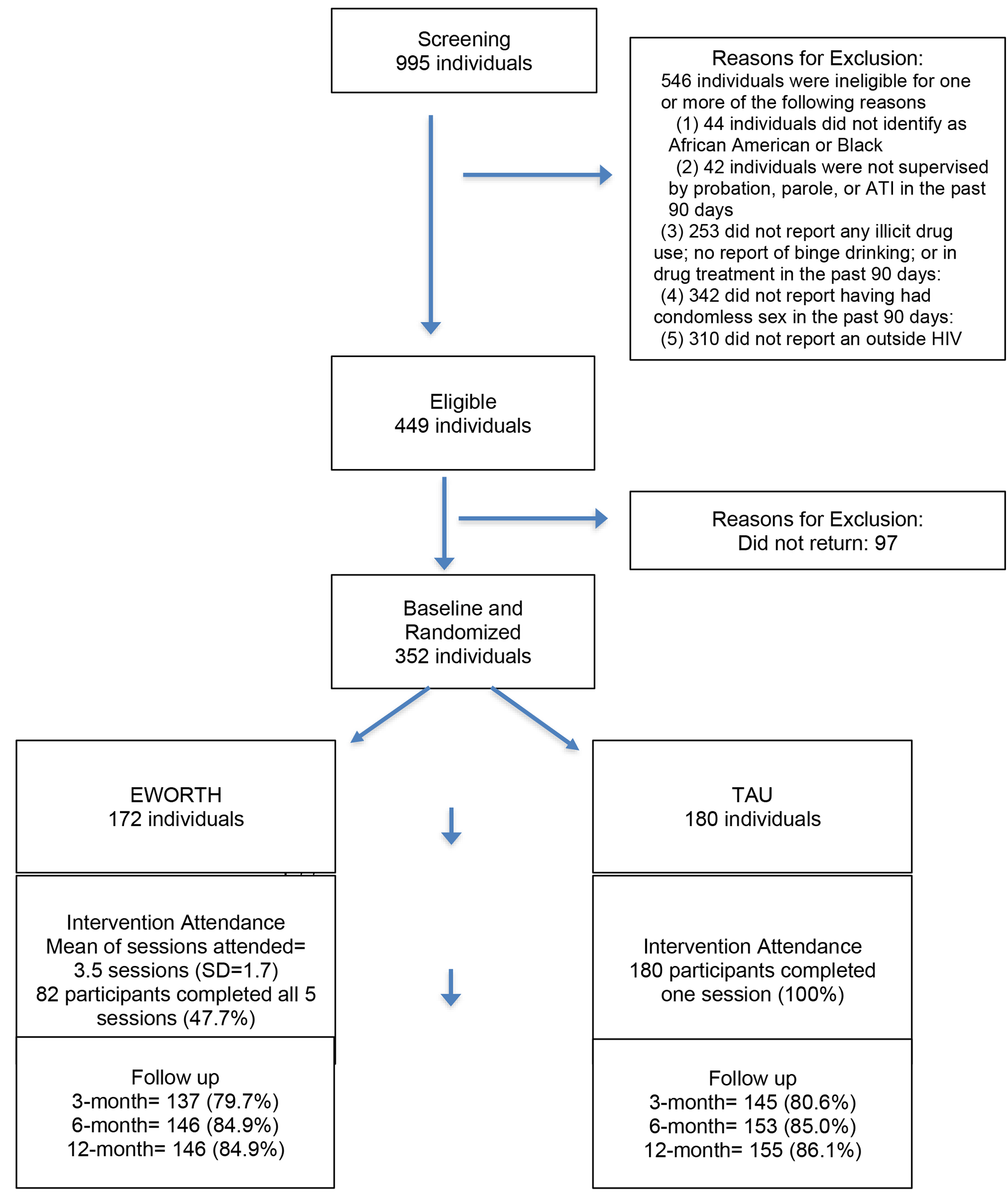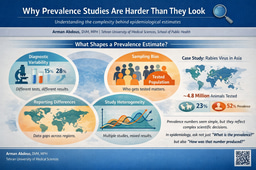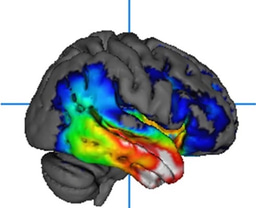Culturally Tailored HIV Prevention: Empowering Black Women Through Education and Choice
Published in Public Health

I've witnessed how after over a decade of availability, PrEP uptake remains disproportionately low among Black women. Black women who use drugs in the U.S. continue to face disproportionately high HIV rates [1]. Although Black women make up just 13% of the U.S. female population, they account for nearly 47% of new HIV diagnoses among women [2]. This is particularly true for those involved in the criminal justice system, where HIV rates can be 5–15 times higher than in the general population [1]. Frustrated by these disparities, our research team gathered to address a critical gap in HIV prevention. They recognized that standard HIV prevention messaging was failing to reach key populations, including Black women. While much of the early PrEP messaging focused on men who have sex with men, other high-risk groups remained underserved by prevention education efforts.
The Intersection of Substance Use and Criminal Legal System
E-WORTH's (Empowering African-American Women on the Road to Health) focus on substance use among Black women in the criminal legal system was deliberate and critical. This population faces a syndemic of overlapping vulnerabilities – substance use disorders, involvement in the criminal legal system, and elevated HIV risk. The criminal legal system represents both a challenge and an opportunity for HIV prevention. While it often perpetuates health disparities, it provides a potential intervention point to reach women who might otherwise have limited healthcare access. E-WORTH leveraged this opportunity by meeting women where they were while addressing the complex interplay between substance use, trauma, and HIV risk [3,4]. Our approach recognized that substance use cannot be addressed in isolation, acknowledging that abstinence may not be immediately achievable for all participants while still promoting healthier choices around both substance use and sexual behaviors [5].
Co-Creating Through Community Engagement
We designed a randomized clinical trial comparing a culturally tailored intervention that included standard treatment-as-usual. The intervention was developed through extensive community engagement, including focus groups with Black women who use drugs and are involved in the criminal justice system in New York City [3,4]. The resulting program addressed not only HIV prevention knowledge but also navigated discussions around medical mistrust – a justified concern given historical abuses in medical research among Black communities [3]. We incorporated trauma-informed approaches, recognizing that many participants had experienced multiple forms of trauma [3].
Study Results and Key Insights
Our results were striking. Over the 12-month follow-up period, women who received the culturally tailored intervention demonstrated significantly higher HIV prevention knowledge and were 2.8 times more likely to initiate PrEP compared to those who received standard education [6]. Women in the intervention group showed significantly higher rates of PrEP adherence among those who chose to use PrEP [6]. Women reported feeling empowered by the community-engaged approach, which centered their experiences and voices [3].
Research Challenges
This research journey wasn't without obstacles. Recruitment proved challenging, as participants were hesitant to engage with a research study while navigating community supervision. Most challenging during implementation was maintaining scientific rigor while being responsive to participants' immediate needs, as many women faced housing instability, food insecurity, and interpersonal violence – pressures that pushed HIV prevention lower on their priority list. Thus, our work identified several key social determinants that create barriers to effective HIV prevention for Black women [7, 8]. Additionally, medical mistrust stemming from historical abuses in research continues to impact healthcare engagement [3]. Depression, anxiety, and PTSD were prevalent among participants, often linked to histories of trauma, substance use, and criminal legal system involvement [9,10]. These mental health challenges created significant barriers to HIV prevention by affecting decision-making, medication adherence, and healthcare engagement. By the time COVID-19 emerged, we had completed our data collection. However, the pandemic impacted our ability to disseminate our findings as quickly as originally planned, so many manuscripts have been delayed.
Building on Success: PrEP-for-WINGS
Following the success of E-WORTH, we developed PrEP-for-WINGS, an adaptation of the Women Initiating New Goals of Safety (WINGS) intervention [11] led by Dr. Anindita Dasgupta and Dr Louisa Gilbert at Columbia University. While WINGS originally focused on identifying and addressing intimate partner violence among women who use drugs, PrEP-for-WINGS also incorporates HIV prevention education with a particular focus on PrEP with a novel Community Health Worker Component to assist with navigation and retention [11]. The intervention maintains our commitment to education and autonomy while addressing the intersecting challenges of violence and HIV risk.
The Next Chapter
As a Caribbean woman, I feel a special responsibility to adapt interventions for Caribbean populations . The region has the second-highest HIV prevalence rate globally after sub-Saharan Africa , yet PrEP availability remains notably limited in these communities [13, 14, 15]. PrEP-for-WINGS addresses alcohol use [11], which is deeply woven into Caribbean cultural fabric as former sugar plantations. A significant challenge is the region's high consumption rates, with countries like Trinidad and Tobago having some of the highest per capita intake [16]. Alcohol impacts HIV prevention by affecting medication adherence and increasing risk behaviors, requiring culturally responsive approaches that acknowledge its social importance while addressing health impacts [15].
Stigma continues to be an obstacle, for the acceptance of exposure prophylaxis (PrEP) among African American women in the United States and Caribbean regions alike. In the Caribbean setting these obstacles are often exacerbated by the knit nature of island communities and deeply ingrained gender norms that prevail there. This observation aligns with studies that have shown how increased social scrutiny, within knit communities can heighten stigma surrounding sexual health and HIV prevention efforts [15, 17].
Broadening the Scope
As I reflect on these findings on HIV Vaccine Awareness Day 2025, several implications emerge. First, culturally tailored interventions work as essential approaches to overcome barriers created by systemic inequities. Second, interventions must address the whole person in their social context, not merely their risk behaviors. Third, community supervision settings represent crucial but underutilized venues for health promotion among vulnerable populations.
Our research has reinforced my personal and professional commitment to an approach based on education, respect for autonomy, and recognition of each individual's right to make informed choices about their health. When I think of people in my community who were affected by HIV, I'm reminded that behind every statistic is a real person deserving dignity and choice. Providing accurate, culturally appropriate information about HIV prevention options – including but not limited to PrEP – empowers individuals to make the choices that best suit their lives.
For me, this isn't just research; it's about creating a better future for communities like the one that shaped me. By developing approaches that center equity, cultural relevance, and individual choice, we can ensure that the benefits of biomedical advances like PrEP – and hopefully - an HIV vaccine – reach all communities at risk, not just those with the most privilege and access.
References
-
-
- Blackstock OJ, Platt J, Golub SA, Anakaraonye AR, Norton BL, Walters SM, Sevelius JM, Cunningham CO. A Pilot Study to Evaluate a Novel Pre-exposure Prophylaxis Peer Outreach and Navigation Intervention for Women at High Risk for HIV Infection. AIDS Behav. 2021 May;25(5):1411-1422. doi: 10.1007/s10461-020-02979-y. PMID: 32748159; PMCID: PMC8284566.
- Centers for Disease Control and Prevention. (2024). HIV Surveillance Report: Diagnoses, Deaths, and Prevalence of HIV in the United States and 6 Territories and Freely Associated States, 2022. https://www.cdc.gov/nchhstp/director-letters/cdc-publishes-new-hiv-surveillance-reports.html
- Johnson K, Gilbert L, Hunt T, Wu E, Metsch L, Goddard-Eckrich D, Richards S, Tibbetts R, Rowe JC, Wainberg ML, El-Bassel N. The effectiveness of a group-based computerized HIV/STI prevention intervention for black women who use drugs in the criminal justice system: study protocol for E-WORTH (Empowering African-American Women on the Road to Health), a Hybrid Type 1 randomized controlled trial. Trials. 2018 Sep 10;19(1):486. doi: 10.1186/s13063-018-2792-3. PMID: 30201039; PMCID: PMC6131955.
- Gilbert L, Goddard-Eckrich D, Chang M, Hunt T, Wu E, Johnson K, Richards S, Goodwin S, Tibbetts R, Metsch LR, El-Bassel N. Effectiveness of a Culturally Tailored HIV and Sexually Transmitted Infection Prevention Intervention for Black Women in Community Supervision Programs: A Randomized Clinical Trial. JAMA Netw Open. 2021 Apr 1;4(4):e215226. doi: 10.1001/jamanetworkopen.2021.5226. PMID: 33835175; PMCID: PMC8035652.
- DiClemente RJ, Wingood GM, Harrington KF, Lang DL, Davies SL, Hook EW 3rd, Oh MK, Crosby RA, Hertzberg VS, Gordon AB, Hardin JW, Parker S, Robillard A. Efficacy of an HIV prevention intervention for African American adolescent girls: a randomized controlled trial. JAMA. 2004 Jul 14;292(2):171-9. doi: 10.1001/jama.292.2.171. PMID: 15249566.
- Goddard-Eckrich D, Stringer KL, Richer A, Dasgupta A, Brooks D, Cervantes M, Downey DL, Kelleher P, Bell SL, Hunt T, Wu E, Johnson KA, Hall J, Guy-Cupid GN, Thomas BV, Edwards K, Ramesh V, Gilbert L. 'Yeah, they suck. It's like they don't care about our health.' Medical mistrust among Black women under community supervision in New York city. Cult Health Sex. 2025 Feb;27(2):127-142. doi: 10.1080/13691058.2024.2358084. Epub 2024 Jun 24. PMID: 38915232; PMCID: PMC11666802.
- Goddard-Eckrich D, Gatanaga OS, Thomas BV, Liu Y, Downey DL, Dsouza N, Medley B, Hunt T, Wu E, Johnson K, Black C, Brown M, Hall J, El-Bassel N, Gilbert L. Characteristics of drug-involved black women under community supervision; implications for retention in HIV clinical trials and healthcare. Soc Work Health Care. 2024 Jan-Jun;63(1):35-52. doi: 10.1080/00981389.2023.2278781. Epub 2023 Dec 1. PMID: 37965711; PMCID: PMC10842763.
- Dsouza N, Gilbert L, Russo M, Johnson K, Chang M, Dasgupta A, Sabounchi N, Lounsbury D, Wu E, El-Bassel N, Goddard-Eckrich D. The Influence of Housing Status and Food Insecurity on a Behavioral HIV/STI Prevention Intervention for Black Women under Community Supervision in New York City: A Moderation Analysis. AIDS Behav. 2024 Sep;28(9):3161-3169. doi: 10.1007/s10461-024-04403-1. Epub 2024 Jun 13. PMID: 38869758; PMCID: PMC11569712.
- Grady, M. D., Tripodi, S., Herod, L., & Rudzinski, M. (2024). Behavioral health interventions for incarcerated adults with histories of trauma: A scoping review. Research on Social Work Practice, 34(4), 415-432.
- "PrEP for WINGS." https://columbia.demo.elsevierpure.com/en/projects/an-effectiveness-trial-of-wingsprep-a-syndemic-mhealth-interventi
- El-Bassel N, Mukherjee TI, Stoicescu C, Starbird LE, Stockman JK, Frye V, Gilbert L. Intertwined epidemics: progress, gaps, and opportunities to address intimate partner violence and HIV among key populations of women. Lancet HIV. 2022 Mar;9(3):e202-e213. doi: 10.1016/S2352-3018(21)00325-8. Epub 2022 Feb 10. PMID: 35151376; PMCID: PMC10009883.
- Etowa J, Tharao W, Mbuagbaw L, Baidoobonso S, Hyman I, Obiorah S, Aden M, Etowa EB, Gebremeskel A, Kihembo M, Nelson L, Husbands W. Community perspectives on addressing and responding to HIV-testing, pre-exposure prophylaxis (PrEP) and post-exposure prophylaxis (PEP) among African, Caribbean and Black (ACB) people in Ontario, Canada. BMC Public Health. 2022 May 7;22(1):913. doi: 10.1186/s12889-022-13093-0. PMID: 35525946; PMCID: PMC9078631.
- Murphy L, Bowra A, Adams E, Cabello R, Clark JL, Konda K, Perez-Brumer A. PrEP policy implementation gaps and opportunities in Latin America and the Caribbean: a scoping review. Ther Adv Infect Dis. 2023 Apr 17;10:20499361231164030. doi: 10.1177/20499361231164030. PMID: 37114192; PMCID: PMC10126665.
- Barreto, S. M., Barata, R. B., & Werneck, G. L. (2024). Epidemiological Challenges in Latin America and the Caribbean. In Handbook of Epidemiology (pp. 1-52). New York, NY: Springer New York
- Walcott MM, Tieu HV, Tipre M, Nandi V, Davis A, Wu E, Wheatle M, Frye V, Figueroa JP. Factors associated with discussing HIV pre-exposure prophylaxis (PrEP) among Jamaican medical providers. Int J STD AIDS. 2024 Mar;35(3):188-196. doi: 10.1177/09564624231201187. Epub 2023 Nov 15. PMID: 37966358.
- Figueroa, J. P., et al. (2015). A comprehensive response to the HIV/AIDS epidemic in the Caribbean: A review of achievements and challenges. Rev Panam Salud Publica, 38(1), 9–
- Greene, G. J., et al. (2021). Intimacy, surveillance, and social regulation: Exploring stigma and PrEP use among young Black gay and bisexual men. Culture, Health & Sexuality, 23(5), 637–652.
-
Follow the Topic
-
Addiction Science & Clinical Practice

This journal provides a forum for clinically relevant research and perspectives that contribute to improving the quality of care for people with unhealthy alcohol, tobacco, or other drug use and addictive behaviours across a spectrum of clinical settings.
What are SDG Topics?
An introduction to Sustainable Development Goals (SDGs) Topics and their role in highlighting sustainable development research.
Continue reading announcementRelated Collections
With Collections, you can get published faster and increase your visibility.
Beyond the four walls: Innovative approaches to promoting equity in addiction treatment
Addiction Science & Clinical Practice is calling for submissions to our Special Collection focusing on low-barrier, community-based models of substance care.
The deadline for submissions to this series has been extended to 13 March 2026 only for authors from the Global South or other under-resourced settings. Submissions to the series from authors that do not meet these criteria will be considered as regular submissions to Addiction Science & Clinical Practice. Funding is available to support the publication charges for authors from lower-income or under-resourced settings. For more information, please contact the publishing team.
This Collection seeks to highlight innovative approaches to substance use and substance use disorder (SUD) treatment initiation and sustained care that extend beyond traditional clinical contexts. We encourage contributions that explore development, implementation, and evaluation of community-based interventions, including but not limited to peer-led models, outreach programs, cultural adaption, mobile services, and harm reduction initiatives that transcend traditional models of substance use care. Manuscripts showcasing novel strategies to engage individuals in treatment, address structural barriers, and promote equity in access to care are especially welcome.
The editors would particularly like to encourage research conducted in such settings in the Global South and in countries where research into substance use and SUD care has been historically low. Additionally, submissions led by or including those traditionally excluded from substance use care knowledge production are encouraged. Submissions may include original research, program evaluations, implementation studies, or policy analyses that advance the evidence base for low-threshold, community-centered substance use treatment models.
This Collection supports and amplifies research related to SDG 3, Good Health and Well-Being and SDG 10, Reduced Inequalities.
All submissions in this collection undergo the journal’s standard peer review process. Similarly, all manuscripts authored by a Guest Editor(s) will be handled by the Editor-in-Chief. As an open access publication, this journal levies an article processing fee (details here). We recognize that many key stakeholders may not have access to such resources and are committed to supporting participation in this issue wherever resources are a barrier. Specific financial support is available to authors based in lower income countries, or who work in communities who do not have access to sufficient funding - if this applies to you, please contact the publishing team. For more information about other support that may be available, please visit OA funding and support, or email OAfundingpolicy@springernature.com or the Editor-in-Chief.
Publishing Model: Open Access
Deadline: Mar 13, 2026






Please sign in or register for FREE
If you are a registered user on Research Communities by Springer Nature, please sign in